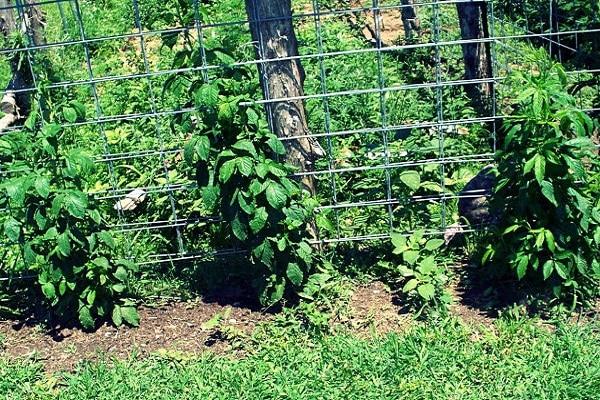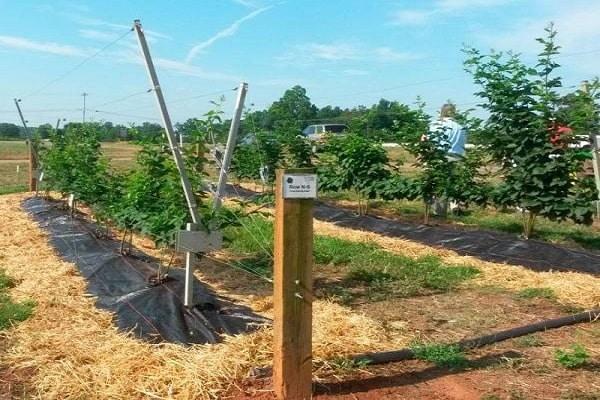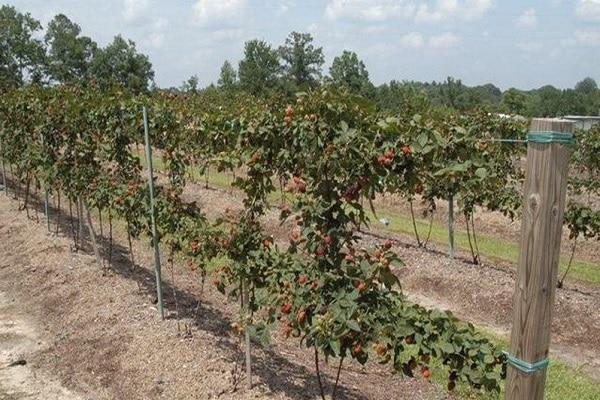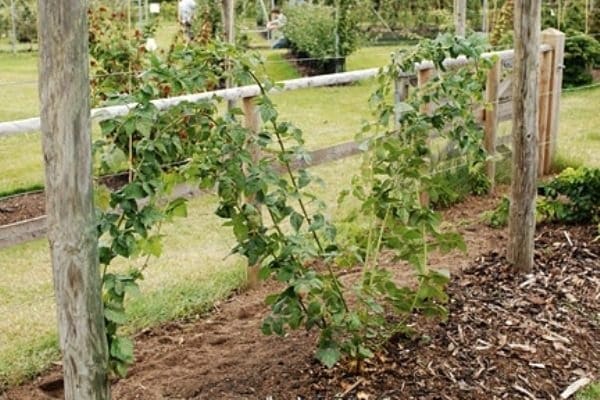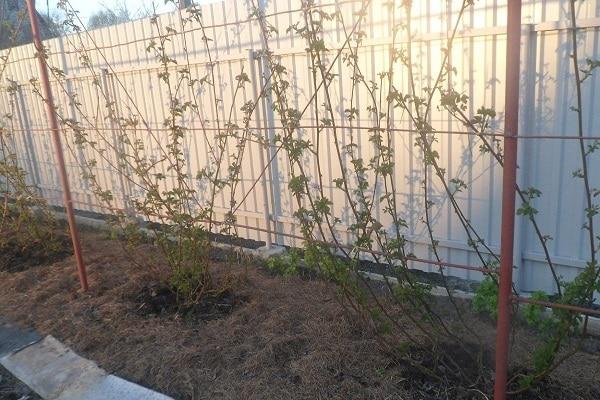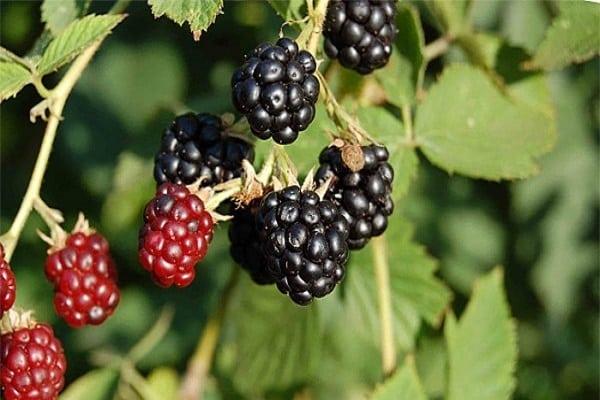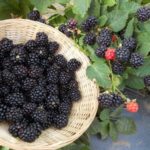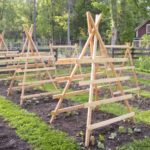The importance of a trellis for blackberries is invaluable. Such designs have a positive effect on the quality of fruits and the speed of their ripening. Trellis also protect the plant from harmful external factors.
- Advantage of using the design
- Varieties
- Single band model
- Two-way
- T-shaped
- V-shaped
- Y-shaped
- Making a trellis for blackberries with your own hands
- Metal supports
- Made from fiberglass reinforcement
- Technology of tying a bush to a support
- The nuances of forming bushes on a trellis
- Weave method
- Fan method
- One-way tilt
Advantage of using the design
The use of trellis structures has many advantages:
- ripe berries are not contaminated or damaged by pests living on the soil;
- the plant is well ventilated, which reduces the likelihood of fungal disease;
- raised lashes do not get dirty on soil particles during rain or irrigation;
- uniform penetration of sunlight accelerates the ripening of berries.
Also, such designs facilitate the process of caring for the plant:
- it is easier to irrigate plantings, it becomes possible to mulch the soil;
- when pruning old lashes, young shoots are not damaged, since they are not intertwined;
- It is easier to harvest on tied structures.
Varieties
There are 2 types of trellis structures:
- Single-lane structure is mainly used in small areas.
- A two-lane model is necessary in large farmland conditions.
Single band model
It is the simplest design. The basis is dug posts, between which a wire thread is fixed. The height of such a support is set at the level of human height. Such supports can be not only vertical, but also inclined, fan-shaped, horizontal.
Two-way
This design is similar to a single-lane one, but the columns are installed in two rows. This support makes it easier to garter blackberries, facilitates the formation of the plant, and protects it from thickening. According to their structure, supports are divided into 3 types: T, V, Y-shaped.
T-shaped
Such a trellis is formed from columns standing up. Horizontal beams are fixed to these elements at equal distances. A wire thread is attached to the edges. In this way, two guides are formed for gartering the lashes.
V-shaped
This design is characterized by the fact that the pillars are installed at an angle.Wire guides are attached to the upper ends of the trellis.
Y-shaped
These trellises are some of the most complex. They are mainly made on hinges. This structure allows the structure to be rotated.
Making a trellis for blackberries with your own hands
To make a trellis support for tying blackberries, you need to know several nuances. First of all, you need to prepare all the necessary materials:
- wooden or metal poles;
- 2.5-3 meters of wire.
Making a homemade trellis follows the following instructions:
- From the beginning of the row with the blackberry bush, a hole is formed for the post; the best option is a depth of 50-60 centimeters.
- Another hole is formed from the end of the row. If the row is long, then you need to install several support columns. The distance between the pillars must be maintained at 5-6 meters.
- Blackberry plantings are divided into equal intervals.
- A gravel layer mixed with brick chips is laid at the bottom of the hole. This is necessary to strengthen the position of the columns.
- The posts are installed vertically upward in the prepared holes. After this, the pillars are dug in with earth and compacted well with feet or improvised materials.
- Next, three tiers of steel wire are stretched between the support pillars. The distance between the wires in the horizontal plane should be about 0.6 meters. The wire must be well tensioned so that it does not sag. On the outermost posts the wire is carefully fixed.
This three-level trellis design is suitable for growing any blackberry variety.
Metal supports
Metal supports can be used to form any type of trellis.In this case, metal pillars can form both a single-lane and a two-lane model.
Made from fiberglass reinforcement
This material is used to form two-strip trellis supports. In this case, instead of wire, similar fiberglass beams can be installed as guides.
Technology of tying a bush to a support
In order for the trellis to provide maximum efficiency, you need to know how to tie blackberries to it. When tying to a simple trellis, the branches need to be fixed to the wire as they grow.
The nuances of forming bushes on a trellis
Branches can be placed on the trellis support in different ways. To tie them up correctly, you need to pay attention to the peculiarity of the crown type of the blackberry variety. There are several effective ways of gartering.
Weave method
This weaving method is used in the spring. With the onset of spring, at the moment the blackberries open, last year's branches intertwine. In this case, the branches wrap around the lower tiers of the trellis support. And young shoots rise to the upper tiers. Young shoots are fixed without intertwining.
Fan method
To ensure such a garter, it is necessary to maintain a distance between plantings of 2-2.5 meters. The branches are immediately fixed to the lower tiers after opening. Young shoots are attached to the top guide. This fixation allows you to create conditions for the active growth and development of the blackberry bush.
One-way tilt
To make the harvesting process easier, you can use the one-sided tilt garter method. To do this, last year's and young branches are placed on different sides of the support.
To fix the lashes to the supporting structures, various materials are used.Most often, pieces of twine or plastic clamps are used.
The use of such a trellis design allows you to obtain a yield of 10-15 kilograms from 1 linear meter of constructed fence. Also, such structures will accelerate the development of the bush, protect it from the spread of diseases, pests crawling on the soil, and darkening of the plant.

